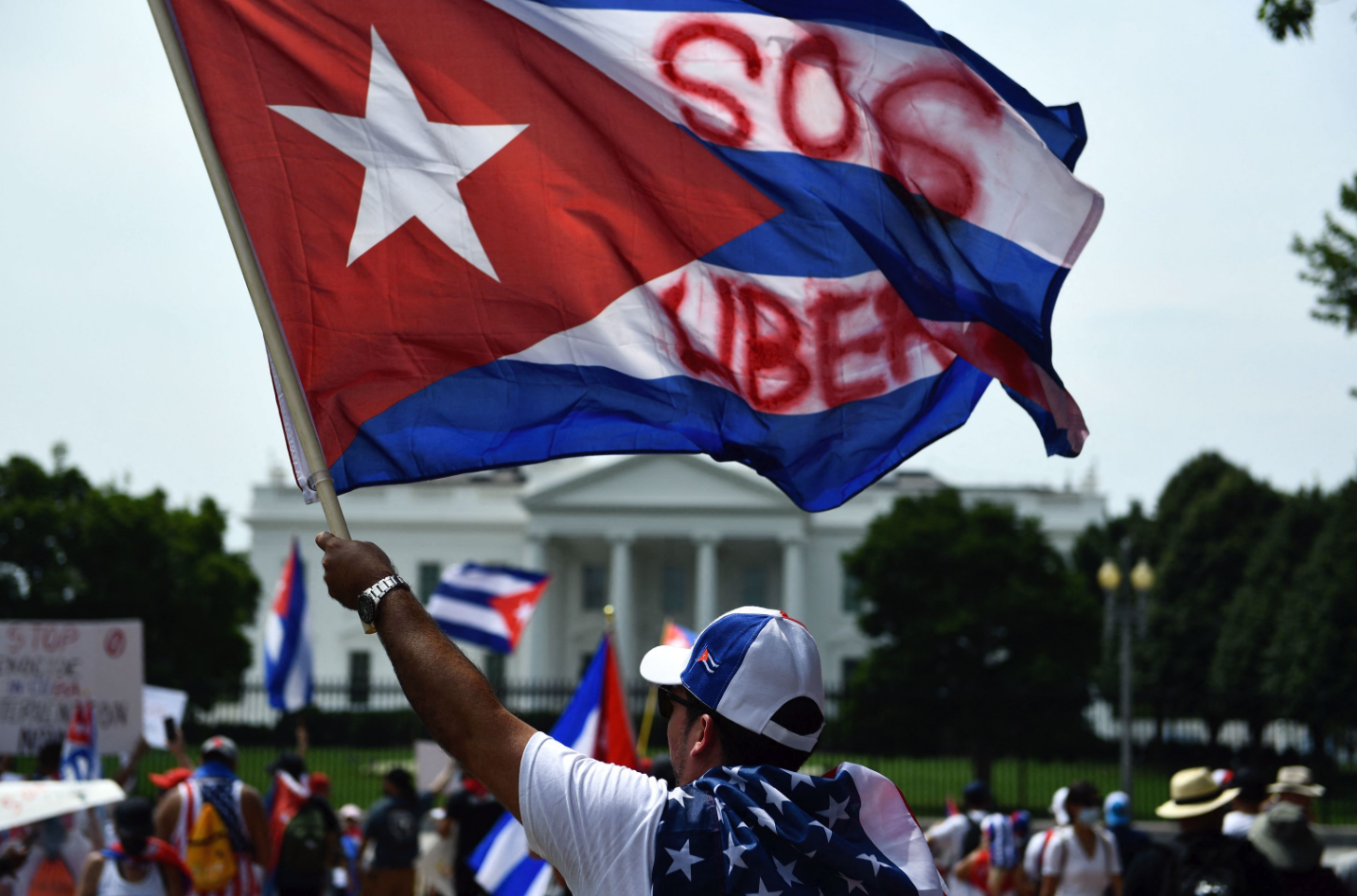The question whether the United States embargo is the cause of Cuba’s current economic and financial situation does not have a simple answer. The inefficiency of Cuban socialism, much greater than that of any other Leninist socialism, and the tendency of the regime not to pay its debts, even when it could, partly explain this situation. However, it is evident that the embargo does have important repercussions on it, otherwise, the insistence on keeping it would not be explained. No one insists on using a resource that the opponent successfully uses to victimize and disqualify you, unless in the general calculation of gains-losses the perceived balance is positive. At the end of the day, if the soil and productions of Cuba, a small archipelago without great natural resources, are worth anything, it is because of our proximity to the United States. A country whose economy Cuba has complemented since the 18th century, when a by-product of our sugar production, the honeys, became the raw material for the production of New England rum.
Cuba’s economic dependence on the United States is such that, after the breakup of 1960, the regime has only managed to get the country out of the crisis by selling itself as the ideal ally of anyone willing to pay for Cuba’s inefficient socialism in order to annoy our neighbor. Cuba has managed to survive more than sixty years of disconnection with the United States, its natural and historical complementary economy, by seeking the politically interested economic support of that country’s overt or covert enemies. Because the reality is that, beyond its proximity to the United States, Cuba has little to offer to other economies, nor can it live autarchically.
But the preservation of this —embargo which, let us remember, is not the only cause of the current Cuban situation, although it influences it— is in whose interest? Contrary to the widespread belief in Latin America, the embargo is not maintained in the interest of the public or the political class of the United States. If it were, in the manner of Vietnam, it would have disappeared long ago.
Unlike the Cold War days, when politicians of both parties supported punitive measures against the neighboring island that had dared to ally itself with its archenemy, the Soviet Union, since the 1990s there has been a tendency in American politics to establish a modus vivendi with the Cuban regime. If this has not been possible, it is because of the existence of an important and very active Cuban exile in the United States, which, unlike the Vietnamese, has managed to gain a disproportionate influence in American politics. Consider that, although Cuban Americans do not reach 0.8% of the census, they have a representation of almost 2% in Congress, with three senators and seven representatives.
It was the exile community, with its relations and its political ability to impose its interests, which in the 1990s not only managed to preserve the embargo, but even to ensure that its repeal would be left in the hands of Congress alone, based on certain conditions to be met by any future Cuban government. And all this, despite the widespread idea within the American political class that a regime such as the Cuban one has its advantages, such as those of controlling more effectively the flow of drugs and emigrants, on an island almost near its coasts.
Let us be disillusioned: since the end of the Cold War, the difference is not between the governments of the United States and Cuba, as the regime pretends, but between the exile and that totalitarian regime established on the limitation of civil, political and economic rights to the Cubans. The difference is precisely to preserve or eliminate those limitations, within a transnational or cross-border Cuban society that is increasingly interconnected, and in which, for example, remittances from exiles represent the main economic income for more than a third of the families on the island, and almost all the capital with which private enterprises are started.
The embargo is today the only effective means of pressure in the hands of a significant and growing percentage of Cubans who, dissatisfied with the situation in Cuba, and above all with the economic and political limitations of a totalitarian system, have ended up putting the sea between them and their homeland. Some will question this “unpatriotic” use of the embargo, but who is less patriotic, he who deprives his compatriots of their rights or he who, without rights in his homeland, tries to get them back through the few avenues open to him?
Despite the evidence that the exile community has long been the only important support within the American policy for the preservation of the embargo, Havana insists on treating its elimination as an exclusive matter between the foreign ministries of the two countries. This prevents the solution of a vital problem for Cuba, only because the regime refuses to recognize the exile as a part of the Cuban transnational society and a valid interlocutor. This is increasingly illusory, given the growing proportion of the exile population within Cuba’s cross-border society and its importance in both the island’s economy and U.S. politics.
The international community must understand that it will only be possible to eliminate the embargo when the regime accepts its exiles as a valid interlocutor and takes their demands into account because it is in their hands to change Washington’s policy toward Havana. In the end, Cubans could not be deprived of their rights in their own country, give the only way out to those who do not agree to emigrate, and at the same time hope that by accumulating by the millions those excluded would not end up controlling U.S. policy toward Cuba. Now we have to deal with them, if we really want to reconnect Cuba with its natural and historical market.
*Translated by Janaína Ruviaro da Silva from the original in Spanish.













